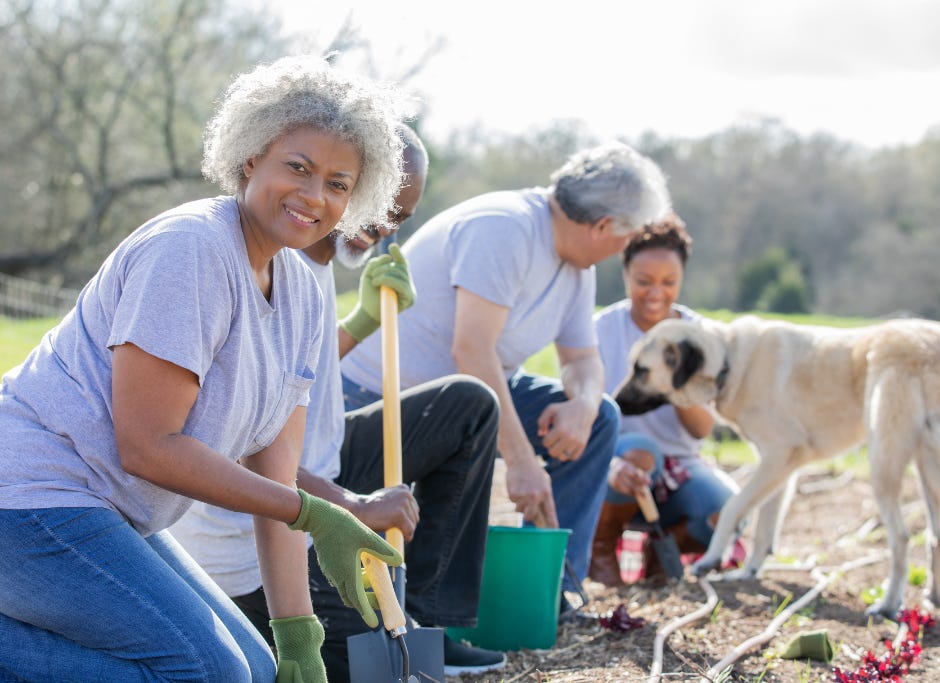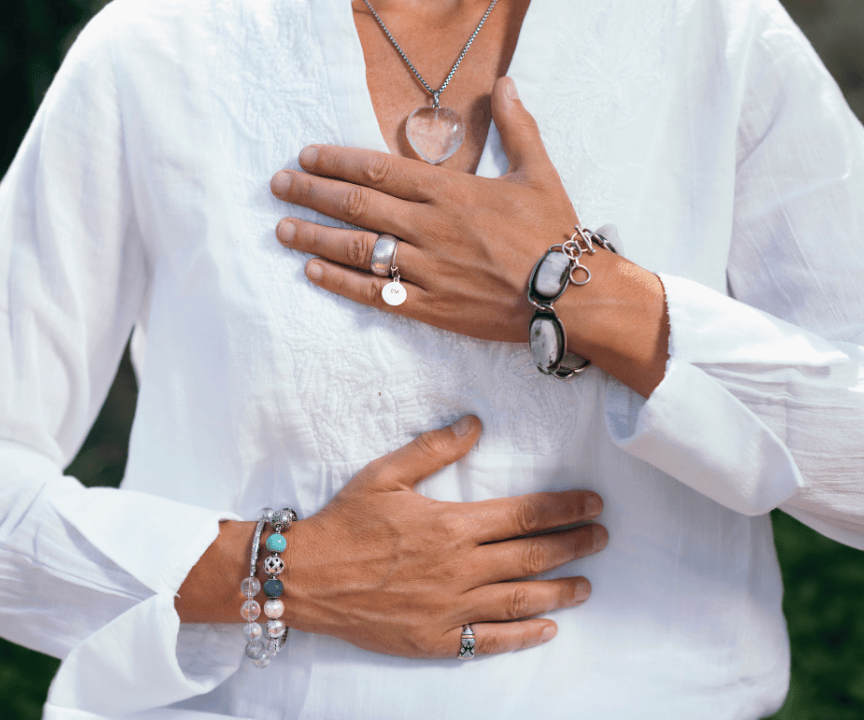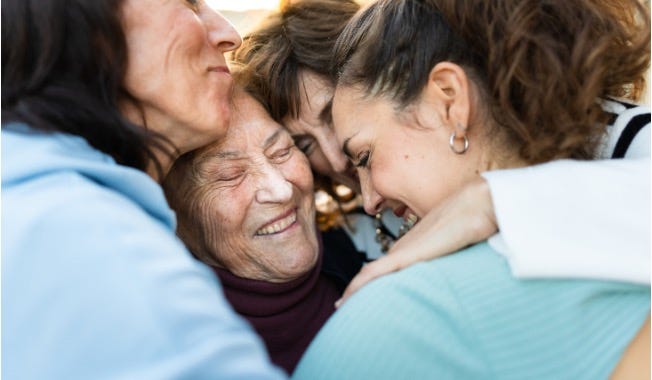How Community Changes You Over Time
The quiet, profound transformation that comes from living side by side
When people talk about moving into a community like Gratitude Village, they often speak with a mix of excitement and nerves. They imagine sharing meals, gardens, play spaces, and conversations. They’re curious about cohousing’s structure, sustainability, and affordability. But what often catches them by surprise—what no brochure or website can fully convey—is how community living changes you over time.
Not with grand gestures or overnight revelations. But in slow, steady, deeply human ways.
Cohousing doesn’t just offer a different way of living. It offers a different you—a more open, grounded, generous version that emerges not in isolation, but in relationship.
🌱 We Begin as Individuals
Most of us arrive carrying the habits of individualism. We’re used to doing things ourselves, solving problems alone, keeping our calendars full and our heads down. Many of us have lived in neighborhoods where we didn’t know the names of our neighbors, let alone their stories.
We might even arrive a little guarded. A little unsure. We wonder:
Will I fit in?
Will I have enough privacy?
What if I don’t want to eat dinner in the Common House every night?
Will people really show up when I need them—or is this just an idea on paper?
And those questions are welcome. Community isn’t built through blind optimism—it’s built through honest curiosity and shared commitment. Gratitude Village is a place where you don’t have to “perform” community. You can just arrive.
The beauty is: who you are when you arrive is not who you’ll remain. That’s not a loss—it’s a gift.
🌤 Little Moments That Shift Something Inside
Change doesn’t come from rules or expectations. It comes from the daily, unscripted interactions that start to soften the edges of our independence.
A neighbor notices your kid is having a hard day and invites them over for cocoa and LEGOs.
Someone drops off fresh bread, still warm from the oven, because they remembered it’s your birthday.
You miss a meeting, and instead of getting side-eye, you get a check-in: “Hey, everything okay?”
At first, these moments feel unexpected. Then they start to feel normal. Then they start to change you.
You begin to ask, How can I show up like that too?
And suddenly, the giving and receiving are no longer transactional—they’re just the heartbeat of daily life.
🌾 From Guarded to Grounded
In cohousing, something remarkable happens: the more you witness other people’s humanity, the more comfortable you become with your own.
You’ll see people in their full range—grieving, joyful, exhausted, inspired—and realize you don’t have to hide your mess either. You don’t always have to be “on.” You don’t always have to have the perfect answer. You just have to be present.
That’s the power of proximity. When we live near people we trust, we get to practice being fully human—no filter required.
You start grounding in the reality that you don’t have to do it all alone. You’re not a one-person island. You’re part of something.
And that feels like exhaling after holding your breath for far too long.
💬 From Reserved to Reaching Out
Many people assume community living is only for the extroverted. But that’s not true. In fact, cohousing can be a gentle invitation for introverts and private people to stretch—not by changing who they are, but by expanding their comfort zone. Surprisingly, many people living in cohousing are proclaimed introverts.
You might find yourself:
Offering to co-host a shared meal
Lending tools to a neighbor you only just met
Joining a garden team, even if you’re not great with plants
Sitting quietly next to someone at a fire circle, knowing your presence is enough
These small acts build trust, not just with others, but within yourself. You begin to believe in your capacity to contribute—not because you have to, but because you want to.
And in that giving, you start to receive a deeper sense of self.
💗 Generosity Becomes a Reflex
One of the most beautiful transformations that occurs over time is the natural growth of generosity. Not the kind that’s performative. Not the kind that drains you. The kind that flows because you’re connected.
When you know your actions ripple outward in meaningful ways—when you know your kindness comes back in unexpected forms—it becomes easier to give.
People bring extra snacks to share. They check in on each other. They organize birthday scavenger hunts for neighborhood kids. They leave notes of encouragement on bulletin boards and tuck flowers into mailbox flags.
These aren’t grand acts. But they are collective. And together, they create a culture of care that’s felt in every corner of the village.
🌎 Living in Community Changes Your Worldview
Over time, living in intentional community rewires how you think about society itself. You begin to wonder:
Why isn’t every neighborhood like this?
Why do we normalize disconnection?
What if cities were designed with care, not just cars, in mind?
You start advocating differently. Voting differently. Thinking about housing, equity, aging, parenting, and sustainability from a place of experience, not theory.
Community opens your eyes. And once open, they don’t close again.
🌀 A Spiral, Not a Straight Line
Of course, change isn’t always linear. You’ll have days where you want to retreat. Moments where conflict arises. Times when you forget how far you’ve come.
But in cohousing, you don’t spiral alone. You spiral inward, toward a deeper self. A more connected self. One that has been shaped by time, by people, by participation.
And just when you think you haven’t grown, a new neighbor moves in. You welcome them with empathy. You show up. You share what you’ve learned.
And you realize—you have changed.
You’re more open. More grounded. More generous.
And you wouldn’t want to go back.
✨ Has community ever changed you?
💬 Leave a comment with a moment that helped you grow—or tell us what kind of transformation you’re craving in your next chapter.








